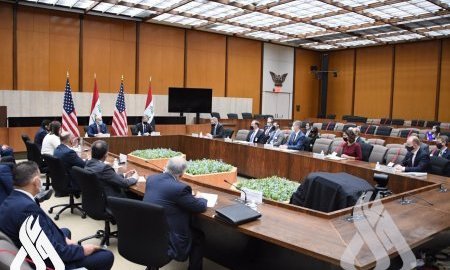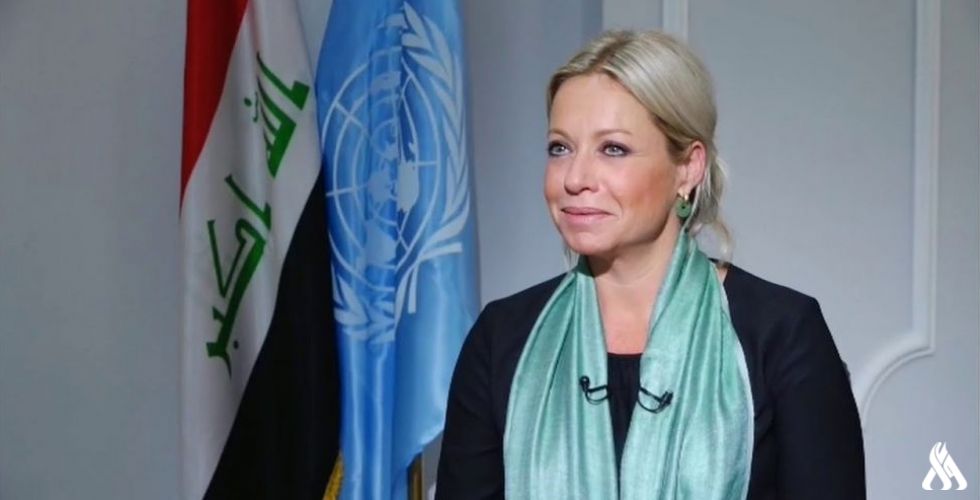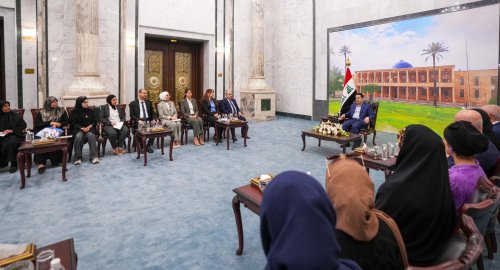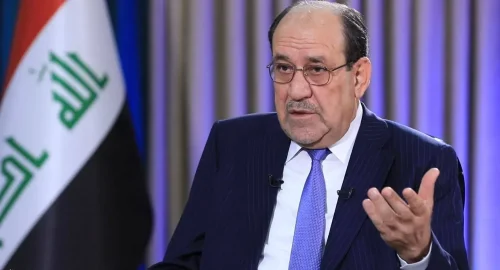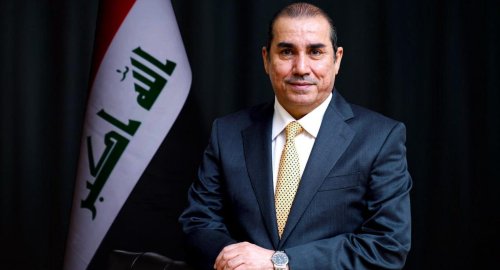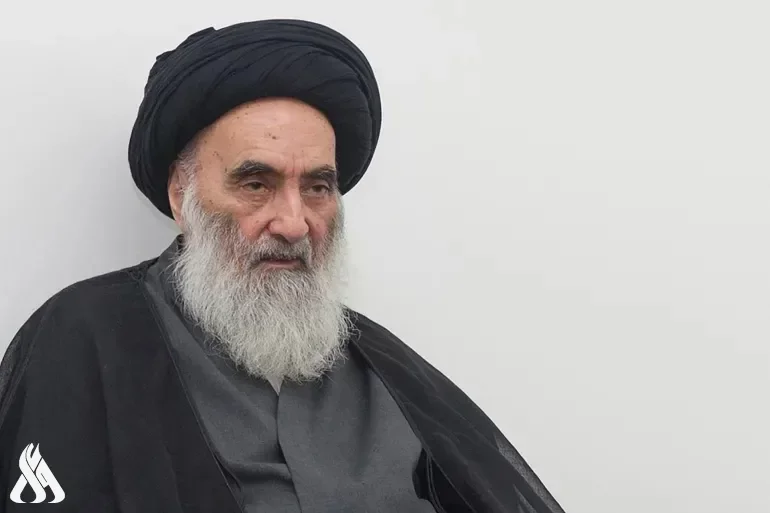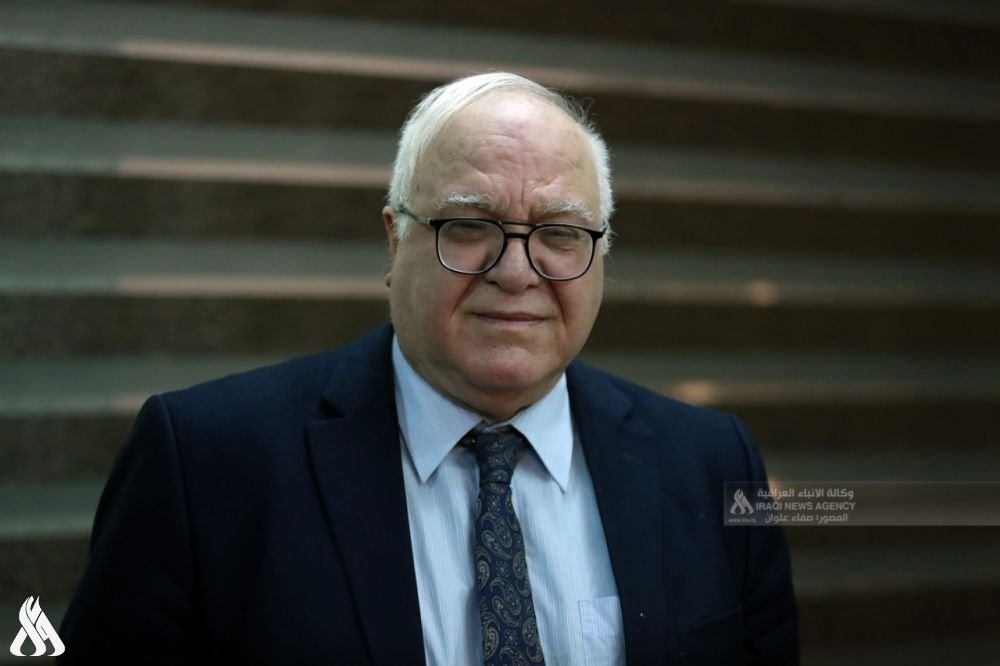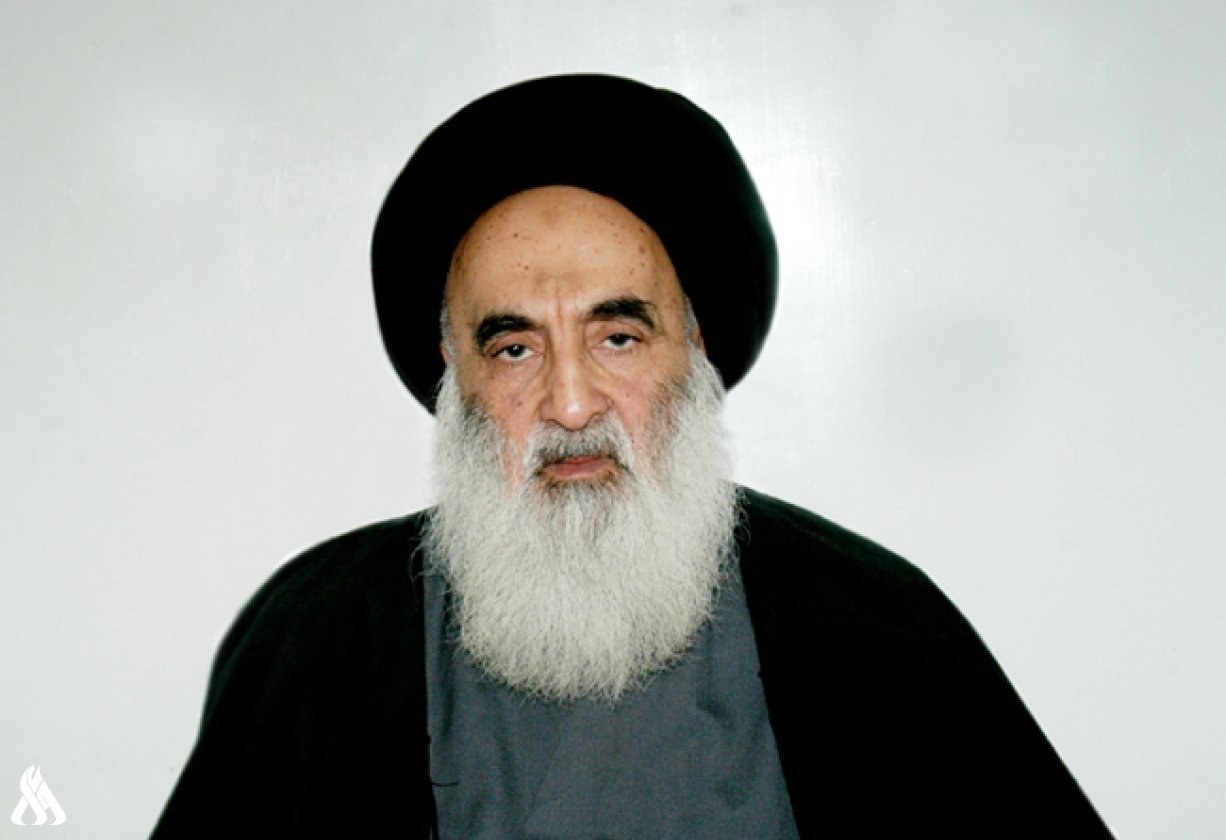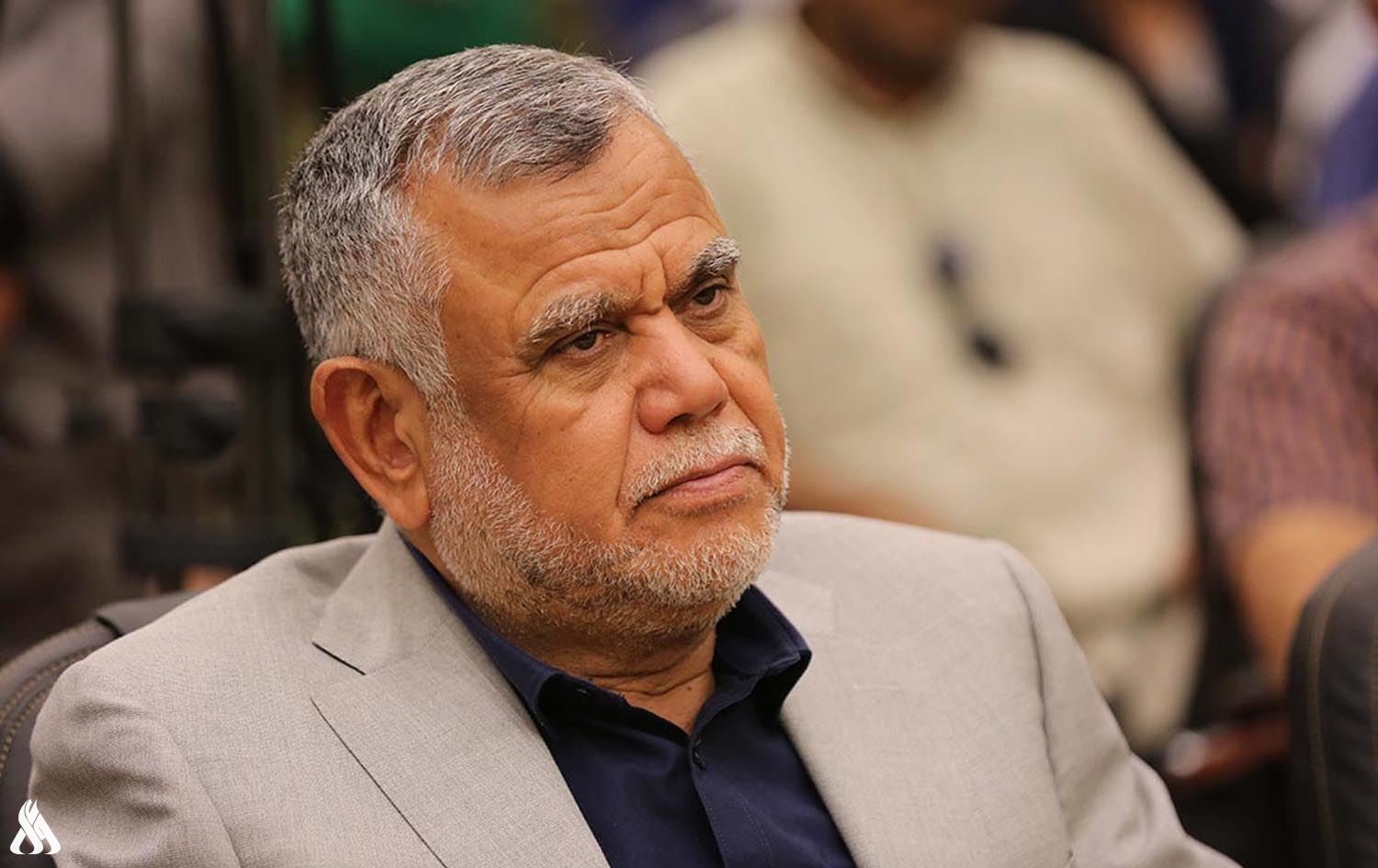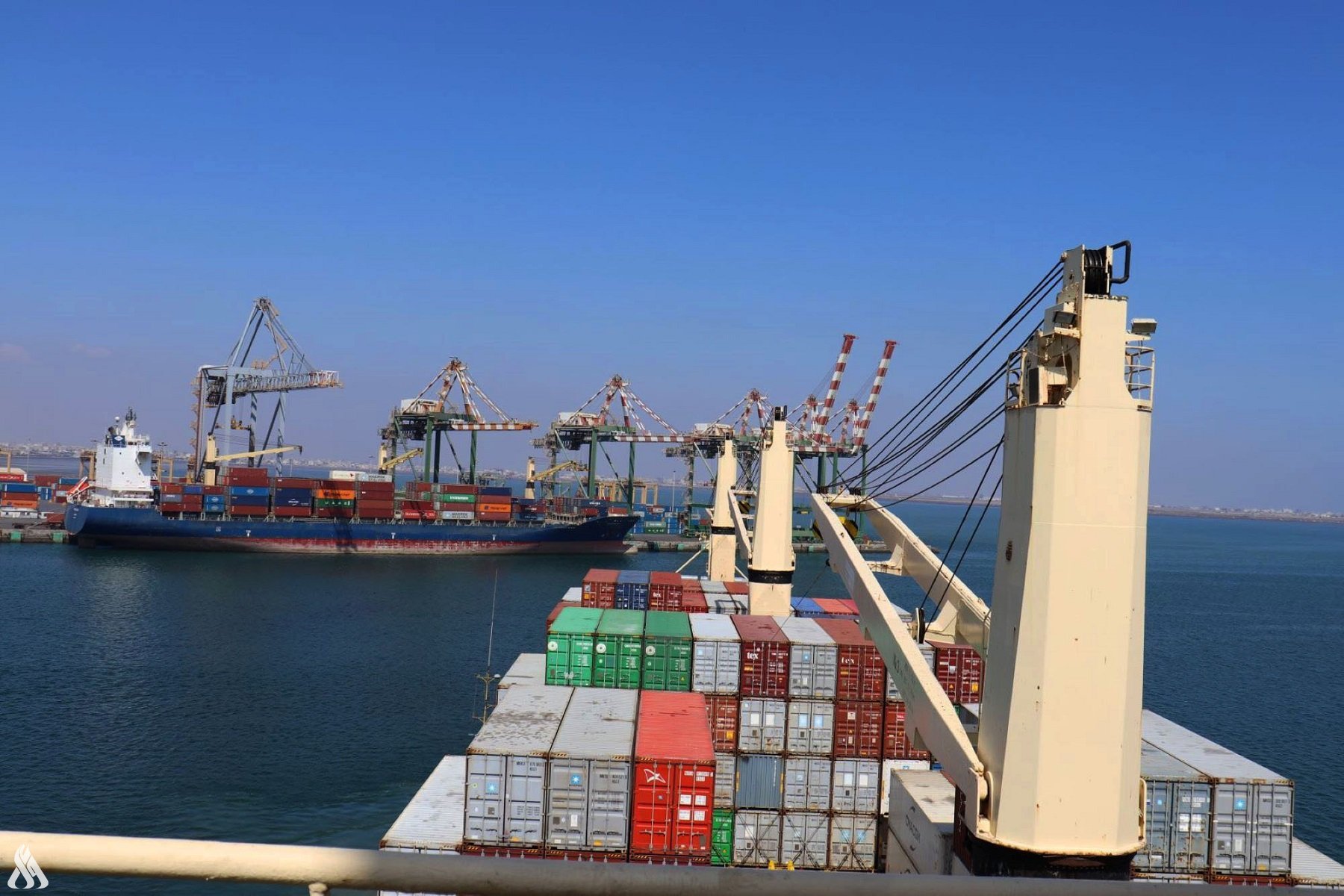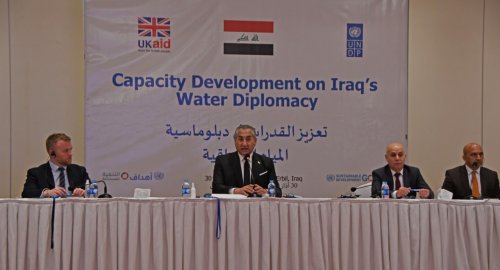
UNDP: 7 million Iraqis at risk, no water access in the coming years

- 30-03-2022, 19:04
INA - Harith Al-Abadi
The activities of the Second Baghdad International Water Conference are kicked off in Baghdad, with international participation, as well as a workshop for the United Nations Development Program in Iraq under the slogan (Strengthening Iraqi Diplomatic Negotiating Capabilities for cross-borders Waters).
"This workshop is an important qualitative leap in the file of Iraq's water negotiations with neighboring countries, as well as they are ahead to integrate the dimensions of climate impacts of changes on the cross-borders water file,” said the Acting Minister of Environment Jassim Al-Falahi during the workshop, which was attended by the Iraqi News Agency – INA.
He noted that “the sensitivity of water sector and its political, economic, social, health and security dimensions also necessitate that everyone should give a great focused attention to the cross-border water negotiations,”
“There is a necessity for Iraq to obtain its water quotas that secure the requirements of a decent life for the citizens, provide food security for Iraq and increase the resilience of the affected sectors and fragile communities. The water sector's current priority plans are within the Ministry's current strategies," he stressed.
Al-Falahi explained, "Studies and reports indicated that there are 7 million people in Iraq who are at risk with not getting their water needs during the next few years if the neighboring countries' water policies continue, and also if the water pollution continues, as this sounds like alarm bells for Iraq in terms of the internal migration and increase the phenomenon of the so-called climate refugees. The Ministry of Environment is keen to support water diplomacy and integrate the environment sector and climate change,”
For his part, the adviser to the Iraqi Ministry of Water Resources, Jamal Mohsen, pointed out that "in the last decade, Iraq has faced a clear decrease in the quantities of water coming to it outside borders, which exceeds 70% of its water imports, due to the policies of upstream countries and the effects of climate change, the difficulty of obtaining data and information about the quantity and quality of water coming to it from upstream countries,”
He stressed that “the ministry worked closely with ministries and other Iraqi authorities to dedicate all tools to protect Iraq’s water rights and to persuade upstream countries to cooperate and adopt the principle of everyone wins, provided that there is no sharing of benefits and share the damage by assuming the responsibility of participation and partnership,”
"Although the region has gone through dramatic crises and fluctuations in the recent period, the efforts of the Iraqi negotiator have shown signs of cooperation with Turkey and Syria," he noted, saying that "with the Turkish side, a memorandum of understanding was signed for the purpose of managing Euphrates and Tigris rivers, and the two parties agreed on an operational protocol draft for the Tigris River, as they agreed to establish a joint research center to develop irrigation systems in Iraq. The same for the Syrian Arab Republic as it did not stop the exchange of information, development and capacity-building as well as the high-rank meetings between Syria and Iraq,”
He highlighted, "in light of these facts, we are certain that water diplomacy will contribute as an effective tool in strengthening the existing cooperation between Iraq, Turkey and Syria to formulate the mechanisms of a water-sharing agreement. Water diplomacy can also bridge relations between Iraq and Iran by focusing on the desired benefits of cooperation and focusing on the participants to pave the way for the way for understandings formulation to share common waters between the two countries,”
The United Nations Development Program stated, during the opening speech of the workshop, that “this project examines the issue of water resource management in the context of climate change, which has become the main driver behind reduced rainfall not only in Iraq but also in the upper riparian countries, Iran, Syria and Turkey, therefore, it is important for the four riparian countries to unite to confront this common threat,”
"Within the framework of this new project to support cross-borders water negotiations, over the next two years, the United Nations Development Program will provide comprehensive support to the Government of Iraq in the management of water resources,” the statement included.
UNDP explained that "the effective management of the available water resources is the first step to ensure good quality and sufficient quantity of water for the citizens of Iraq and for the various sectors of the economy, and the effective management of water resources inside Iraq will help Iraq prepare its case to enhance cooperation with neighboring countries," stressing that “if Iraq does not manages its available water resources effectively, it will be in a poor position to persuade the upper riparian states to increase downstream flows,”
UNDP's support over the two-year period will include “the production of knowledge and data related to water resources for Iraqi decision makers, the development of technical skills on cross-border cooperation and water resource management, and advisory services for the formulation of strategies for cooperation between the countries of the region," according to UNDP program.
Gaza Health Ministry Announces New Death Toll for Zionist Aggression
- International
- 06:04
Al-Maliki: Iraq Managed the Electoral Process Smoothly
- politics
- 05:18
Al-Sistani: Tomorrow, the 29th of Ramadan
- Local
- 25/03/29
Al-Amiri warns of any war between Iran and the US
- politics
- 25/04/01

